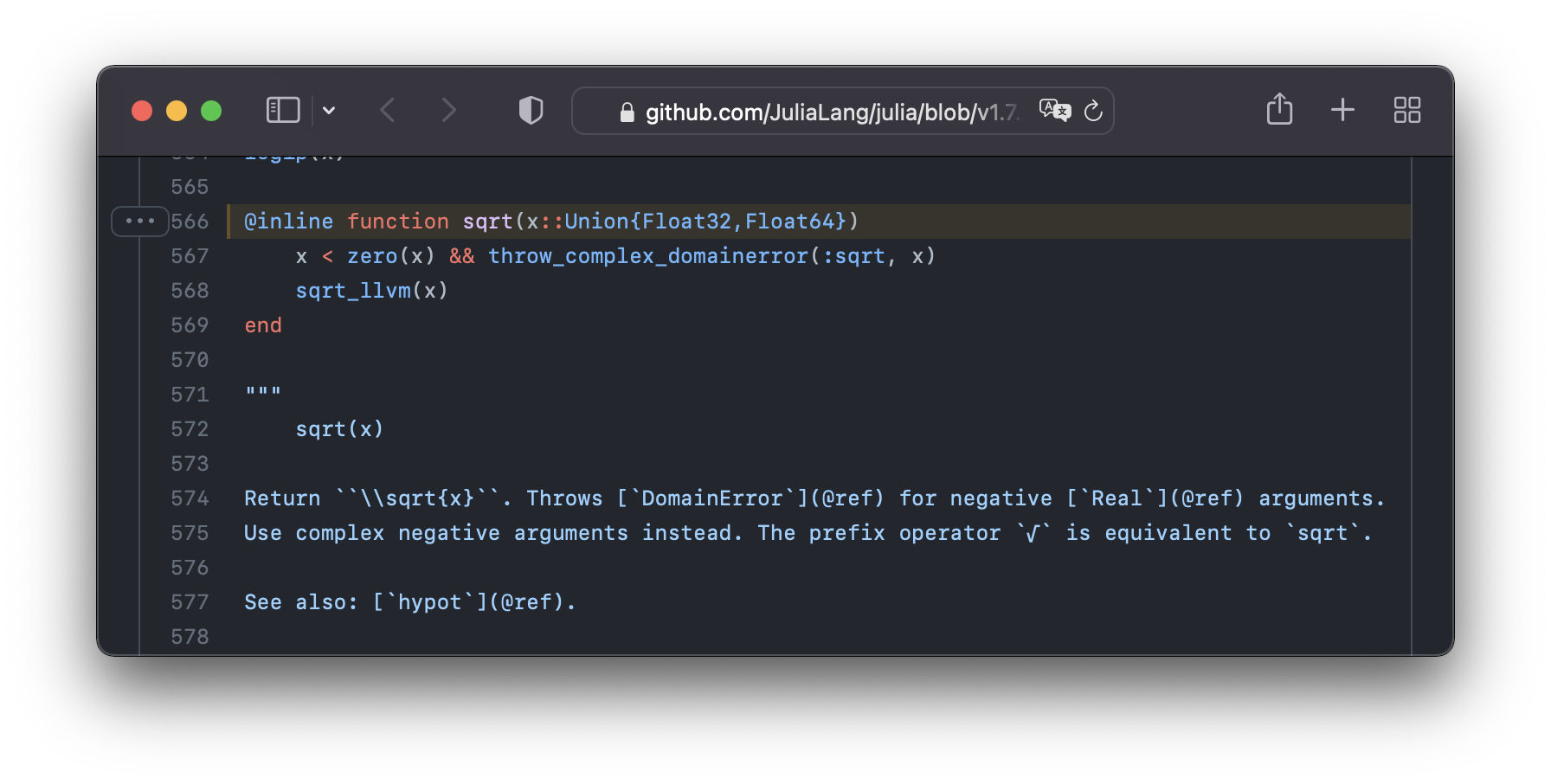BrowserMacros.jl
Julia macros to surf the web from the comfort of your REPL.
Installation
To install BrowserMacros, open the Julia REPL and run
julia> ]add BrowserMacros
BrowserMacros currently requires Julia ≥1.7 and is in early development, so there will be a lot of edge-cases to iron out.
Functionality
GitHub
The highlight of this package is the macro @wwwhich ("world-wide-which").
It is almost identical to @which, but will open a new GitHub tab in your browser,
showing the the exact line of code that is run:
@wwwhich sqrt(2.0)

This also works with code from external packages!
Since @wwwhich opens a permalink, it is perfectly suited for sharing code.
The @issue macro will open an issue draft including the project dependencies
and the Julia version info:
using Distributions
@issue Normal()

Search engines
Several search engines can be queried from your REPL:
@google "How to write macros in Julia"
For each macro, a corresponding function is also exported. The search engines currently include:
| Name | Macro |
|---|---|
| arXiv | @arxiv |
| Baidu | @baidu |
| Bing | @bing |
| Brave | @brave |
| ChatGPT | @chatgpt |
| DuckDuckGo | @ddg |
| Ecosia | @ecosia |
| GitHub | @github |
| Goodreads | @goodreads |
@google |
|
| Google Scholar | @scholar |
| JuliaHub | @juliahub |
| Julia Discourse | @discourse |
| Julia Zulip | @zulip |
| Qwant | @qwant |
| Stack Overflow | @stackoverflow |
| Web Archive | @webarchive |
| Wikipedia | @wikipedia |
| Wolfram Alpha | @wolframalpha |
| Yahoo | @yahoo |
| Yandex | @yandex |
| YouTube | @youtube |
Please open an issue if your favorite search engine is missing!
How does it work?
BrowserMacros constructs URLs and opens them using DefaultApplication.jl.
@wwwhich works by
- finding the corresponding method using InteractiveUtils'
which - determining the UUID and the version of the module containing the method
- looking up the UUID in the reachable registries to find the matching GitHub repository
- constructing a permalink to the relevant line of code
To-Do
- Support for packages hosted on GitLab, SourceHut & Co.
Contributions are more than welcome!